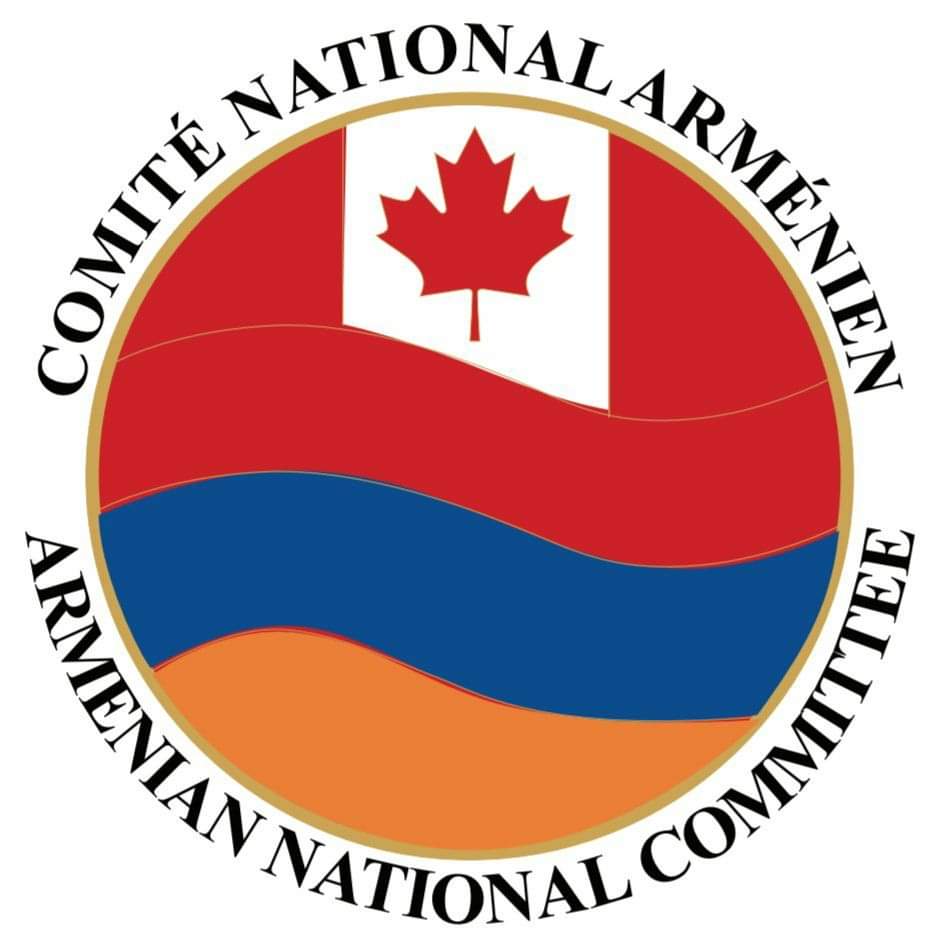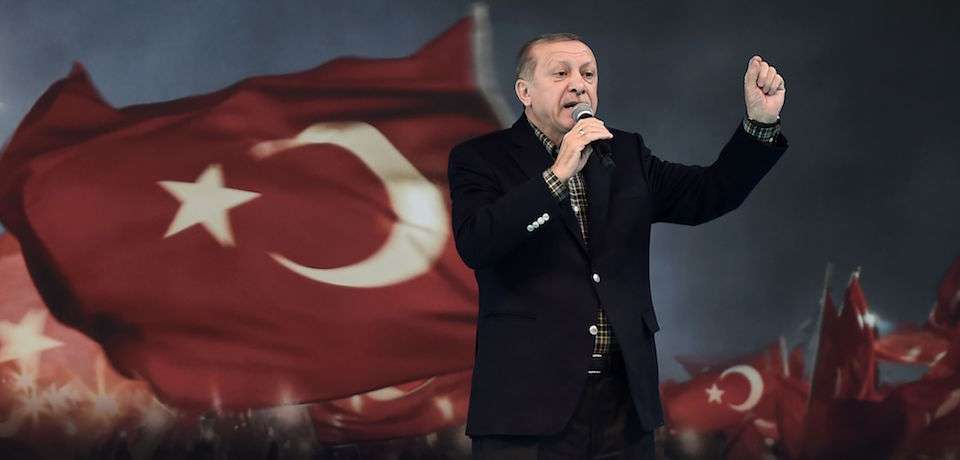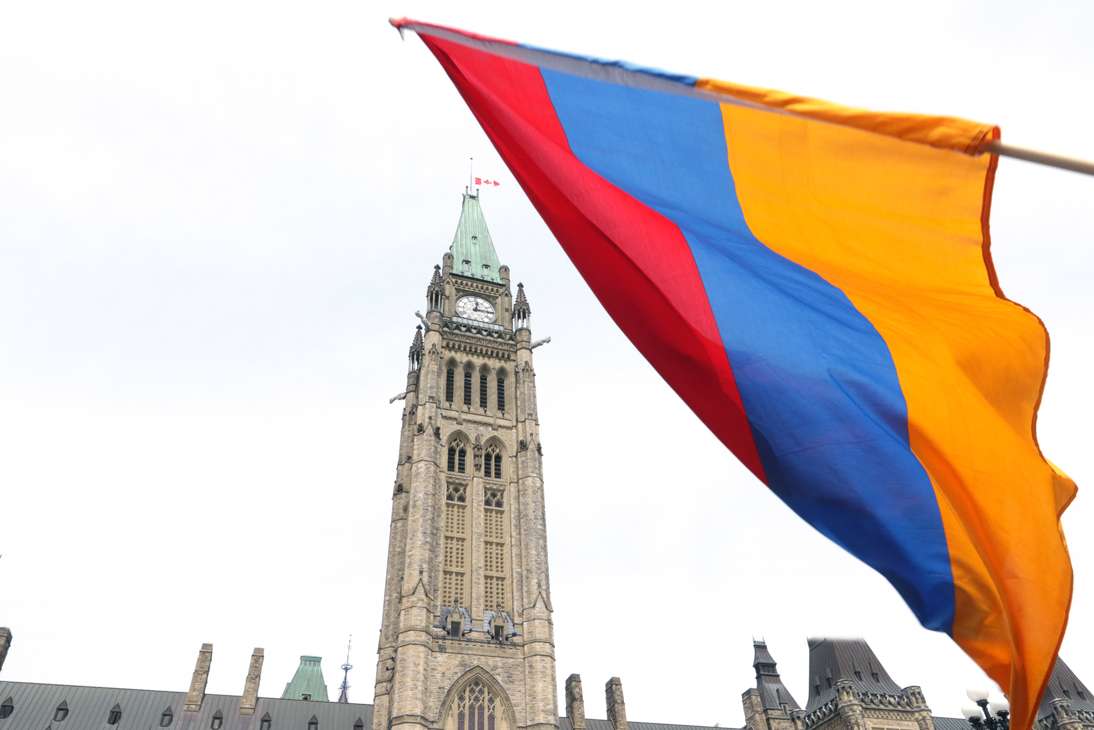By Elliot Ackermam – Foreign Policy
March 29, 2017
Recep Erdogan’s slow-motion plan to abandon democracy — and buy the West’s silence — is almost complete.
In the lead-up to Turkey’s constitutional referendum on April 16, Selahattin Demirtas, the co-chair of the opposition pro-Kurdish Peoples’ Democratic Party (HDP), sits in prison. With his voice effectively muzzled, he has taken to writing short stories, the latest of which is “Aleppo Mince,” where one of his characters muses, “I wonder if in reality death is altogether commonplace, normal, and we are the ones who exaggerated it, made it into something extraordinary.” To understand the politics of Turkey’s upcoming referendum, one must understand its last general election in 2015 and the past two years in which, as Demirtas writes, violence has become commonplace.
Turkey has been wracked by political instability since Demirtas and the HDP won an unprecedented electoral victory in June 2015, exceeding 10 percent of the popular vote, which allowed them for the first time to create an HDP voting bloc in parliament and which also led to the first electoral defeat for President Recep Tayyip Erdogan’s Justice and Development Party (AKP) since 2002. To undercut this electoral victory, Erdogan and his allies have used violence to create the conditions necessary to consolidate power. Meanwhile, the United States and Europe haven’t just remained silent — they have been complicit.
Erdogan had only assumed the office of president one year before the 2015 elections, after finishing his third term as prime minister, the maximum number of terms he could hold that office under Turkish law. The presidency had, in the past, been a limited role, largely ceremonial in nature. However, prior to the June 2015 parliamentary elections, Erdogan was already maneuvering to extend his tenure in power by rewriting the constitution to create an executive presidency that he could hold for at least a decade.
In that election, many Turks who opposed Erdogan’s consolidation of power registered their protest by supporting members of the HDP who, if they exceeded 10 percent of popular support nationwide, could block Erdogan’s AKP from forming a governing majority and thus force them into a power-sharing coalition government. This was the outcome on election day when, for the first time in more than a decade, the AKP did not receive a governing majority. It was an outcome that would be challenged that summer.
As Demirtas and his 79 colleagues from the HDP prepared to sit in the Turkish parliament, negotiations to form a coalition government began. However, as stipulated by Turkish election law, if no coalition government formed by August, a snap election would be scheduled for that November. Subject to this restriction, negotiations to form a government were doomed from the start. Under Erdogan’s leadership, the AKP opted out of a power-sharing arrangement with any other party and chose to return to the polls. But to successfully win a governing majority, political conditions inside of Turkey needed to change to the AKP’s advantage. And this is what the AKP set out to accomplish that summer.
How would the AKP change the political landscape in Turkey before the November elections? It found the answer by resuming the war against the Kurds, eroding their support among Turks who months before had registered protest votes with the pro-Kurdish HDP as a way to check Erdogan’s power. In response to fighting in predominately Kurdish cities like Diyarbakir and Cizre that had led to a stream of dead Turkish soldiers, and terrorist bombings in Ankara and Istanbul that killed hundreds of people, President Erdogan resumed Turkey’s war against its Kurdish population. The Turkish government began flying sorties against Kurdish targets out of Incirlik Air Base, breaking a cease-fire that Erdogan himself had played a key role in brokering two years before and which had been one of the crowning achievements of his tenure as prime minister.
The United States had supported the cease-fire but remained largely silent throughout this resumed war, aside from the occasional statement of support for the Turks. “We have strongly condemned the #PKK’s terrorist attacks in #Turkey and we fully respect our ally Turkey’s right to self-defense,” presidential envoy Brett McGurk tweeted on July 25, in one example, after a Turkish bombing run against the Kurds. One reason is that Erdogan had just won Washington’s favor by giving it something it had wanted. Prior to the June elections, the U.S. government had been lobbying Turkey to use Incirlik Air Base to launch sorties into Syria in its war against the Islamic State. For months the Turkish government had denied these requests and refused to enter the U.S.-led coalition against the Islamic State. But within two weeks of Turkey’s June elections, the Turks agreed not just to allow American warplanes to base out of Incirlik but themselves launched airstrikes against the Islamic State.
Erdogan had also found transactional ways of buying Europe’s silence. Leaders of European Union nations proved hesitant to criticize the Turkish government’s internal politics given Turkey’s role in stanching the westward flow of nearly 3 million Syrian refugees.
Turkey’s military operation against the Kurds, and the parallel election campaign, produced a tumultuous summer and autumn for Turkey. Erdogan argued to the electorate that the stability provided by a strong AKP majority was the safest course for Turkey. He chose not to emphasize that his own policies had largely created this instability. When Turks returned to the polls on Nov. 1, 2015, the result was a governing majority for Erdogan’s AKP and a succession of political purges targeting the media, academia, the judiciary, and the military that would culminate in the failed July 15, 2016, coup, after which President Erdogan declared a state of emergency that remains in place to this day and which could extend almost indefinitely if he’s able to win the referendum on April 16.
Erdogan’s dreams of an executive presidency and new constitution have been the central problem in Turkish political life for the past three years. The United States and Europe have played an important role in enabling Erdogan’s excesses by pursuing shortsighted policy objectives — single-minded prosecution of the war against the Islamic State in the case of the United States and stemming refugee flows in the case of Europe — at the expense of their other professed goals and values. By pursuing short-term interests, the West is seeding long-term problems by enabling an authoritarian government and sabotaging one of the region’s few democracies.
The silence of the world’s great democracies as the Middle East’s one great democracy slips toward authoritarianism has been deafening for Turks. Inside of Turkey, members of the HDP and other opposition parties have organized a “no” campaign to counter Erdogan’s referendum, but they have received little support from the West. Although the polls are close, it is hard to be optimistic about the outcome. Based on the experience of June 2015, it’s hard to believe that Erdogan will accept a defeat.
What will the reaction be among the international community if Turkey devolves into an authoritarian state? It’s hard not to hear Demirtas’s prediction in the lines of his story, which deals with a bomb’s explosion in Aleppo: “[fusion_builder_container hundred_percent=”yes” overflow=”visible”][fusion_builder_row][fusion_builder_column type=”1_1″ background_position=”left top” background_color=”” border_size=”” border_color=”” border_style=”solid” spacing=”yes” background_image=”” background_repeat=”no-repeat” padding=”” margin_top=”0px” margin_bottom=”0px” class=”” id=”” animation_type=”” animation_speed=”0.3″ animation_direction=”left” hide_on_mobile=”no” center_content=”no” min_height=”none”][P]eople rushing to work still won’t have heard the news. They’ll hear it soon enough, but most of them will regard it as an ‘ordinary’ explosion, not even worth reading about.”
Photo credit: OZAN KOSE/AFP/Getty Images
[/fusion_builder_column][/fusion_builder_row][/fusion_builder_container]


